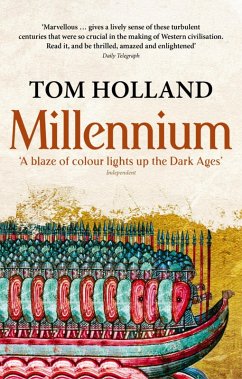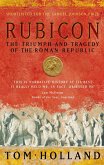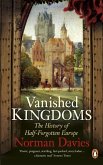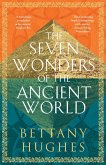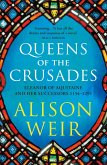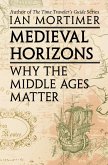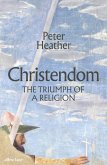MILLENNIUM is a stunning panoramic account of the two centuries on either side of the apocalyptic year 1000. This was the age of Canute, William the Conqueror and Pope Gregory VII, of Vikings, monks and serfs, of the earliest castles and the invention of knighthood, and of the primal conflict between church and state. The story of how the distinctive culture of Europe - restless, creative and dynamic - was forged from out of the convulsions of these extraordinary times is as fascinating and as momentous as any in history.
Dieser Download kann aus rechtlichen Gründen nur mit Rechnungsadresse in A, B, BG, CY, CZ, D, DK, EW, E, FIN, F, GR, HR, H, IRL, I, LT, L, LR, M, NL, PL, P, R, S, SLO, SK ausgeliefert werden.

Ein Beispiel für ranschmeißerische Dan-Brown-Geschichtsschreibung: Tom Hollands Geburt Europas
Können wir, Zeitgenossen des letzten Jahrtausendwechsels, vom vorletzten lernen? Ist die Furcht vor dem ökologischen, atomaren Weltuntergang mit dem Chiliasmus um das Jahr tausend zu vergleichen? Ein paar Jahre zu spät, doch nicht zu spät macht sich Tom Holland in seinem dicken Wälzer "Millennium - die Geburt Europas aus dem Mittelalter" an die Beantwortung solcher Fragen.
Was Holland umtreibt? Es "wird mir", schreibt er, "beim Blick nach vorn vor allem die schreckliche Unendlichkeit der vor uns liegenden Zukunft bewusst und die im Vergleich dazu so erbärmliche Winzigkeit der menschlichen Existenz". Es handelt sich also um ein therapeutisches Werk. Holland hat die gewiss nicht unbegründete Furcht, die Menschheit werde sich innerhalb der kommenden Generationen vernichten, also ins Mittelalter getrieben. Er sucht Parallelen zwischen der Endzeitstimmung um das Jahr 1000 bis 1033 und heute.
Dass es damals keine belegbare Panik und erst recht keinen Kollaps gab, ist bei diesem merkwürdigen Werk schon komplett schnurz. Denn Holland analysiert oder belegt eh nichts, sondern erzählt munter drauflos, was zwischen Karl dem Großen und der Eroberung Jerusalems um 1099 in Europa irgendwie so alles Sache war. In derart saloppen Formulierungen ist Holland nämlich gut. Beispiele gefällig? Heinrich IV., dessen Canossa-Gang unser Autor dramatische Seiten widmet, geht bei der Belagerung Roms "der königliche Blutdruck zurück". Gregor VII. hat in Gestalt von Mathilde von Canossa einen "Hauptsponsor" gefunden.
Und der streitbare Papst der Kirchenreform riskiert niemals "Knatsch" mit König Alfons VI. von Kastilien-Leon. Man merkt mancherorts durchaus, dass der Autor mit seiner Epoche vertraut ist. Die flapsige Ausdrucksweise hat also System. Offenbar hofft Holland, dadurch seinen Lesern, denen er wohl nur semantische Rumpffähigkeiten zutraut, das ferne Mittelalter reibungsloser zu vermitteln. In der Tat könnte die oft knochentrockene Diktion mancher Mediävisten eine Modernisierung gut gebrauchen.
Doch Hollands Brachialplauderei ist das schlimmere Übel. Wenn er den unleugbaren demographischen, kulturellen, technologischen Aufbruch Europas nach dem Jahr 1050 heruntererzählt, geht er nicht auf die komplexen Gründe ein und verliert sein großspuriges Thema "Europa" komplett aus dem Blick. Hollands so gut wie fußnotenfreies Buch ist ein trauriges Beispiel für ranschmeißerische Dan-Brown-Geschichtsschreibung, die nichts erklärt und die Herkunft ihrer locker vom Hocker erzählten Ereignisgeschichte - wohl von ferne inspiriert von Richard William Southern, Marc Bloch, Georges Duby - noch nicht einmal offenlegt. Auch von den großen Weltuntergangsworten vom Anfang ist nach über vierhundert Seiten, wenn Holland wie ein Augenzeuge den ersten Kreuzzug schildert, nichts übrig geblieben. Warum Europa gerade damals geboren sein soll, bleibt des Autors Geheimnis. "Das Gefühl, dass eine neue Epoche heraufdämmert", so tönt Holland vorneweg, "schärft prinzipiell das Denken." Schön wär's.
DIRK SCHÜMER
Tom Holland: "Millennium". Die Geburt Europas aus dem Mittelalter. Aus dem Englischen von Susanne Held. Klett-Cotta Verlag, Stuttgart 2009. 518 S., Abb., geb., 29,90 [Euro].
Alle Rechte vorbehalten. © F.A.Z. GmbH, Frankfurt am Main

